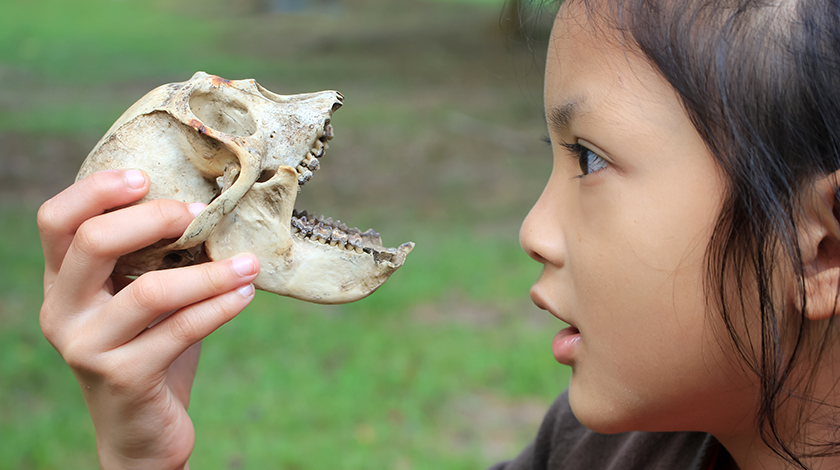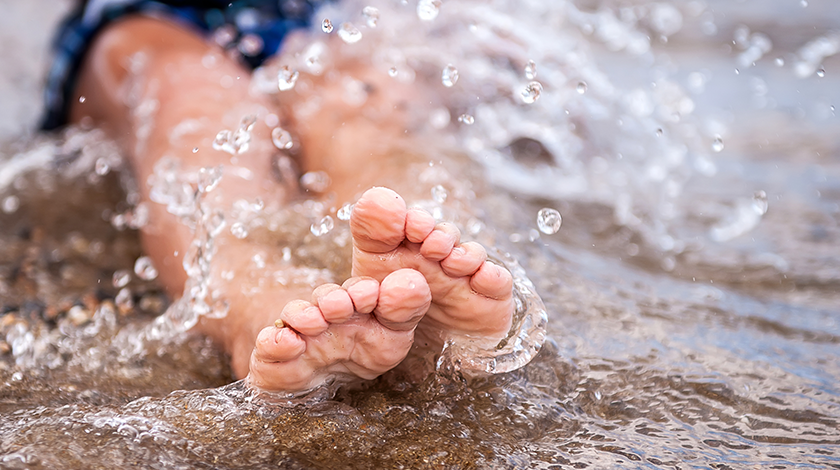Scientists have been studying the human body since the time of Aristotle, and yet, we are only fractionally closer to uncovering all of its mysteries. Have you ever wondered why we have wrinkly fingers by spending time in water, or why women always feel colder than men? If so, read on!
Raisin fingers
Spend some time in a swimming pool or bathtub and your fingers will be shrivelled up like raisins — some scientists believe raisin fingers have their roots in evolutionary development biology.
Laboratory tests have consistently indicated that wrinkly fingers provide a better grip on smooth objects than dry fingers. Like the treads on car tyres, wrinkles provide greater traction on slippery surfaces and act as channels through which water can drain away — an advantage undoubtedly invaluable to our forebears who spent plenty of time in the wind and rain.3
Morning hunger pangs
Have you ever consumed a massive dinner feast, only to wake up starving the next morning? You probably wondered where all the food went.
The key to understanding morning hunger pangs is the concept of Glycemic Index (GI). GI measures the speed at which carbohydrates in a food causes the raise in blood sugar levels. If your late night meal was rich in simple carbohydrates such as pasta, white rice, white bread or potatoes, you’ll wake up hungry the next day. These foods have got a high GI and were digested rapidly, causing a huge peak followed by a big crash in blood sugar levels.1
To avoid morning munchies, try eating slow-digesting, low-GI whole grains such as brown rice, wholemeal bread, lean protein and root vegetables for dinner.1
She gets the shivers
Have you ever noticed women tend to have colder feet and hands than men, and generally suffer more in cold weather? To understand why, you have to know how the human body reacts to being cold. When the temperature drops, blood flow to the skin and our limbs are reduced to keep our core warm, and this process is more rapid in women. The female hormone oestrogen affects the blood vessels in the surface of the skin, making them more sensitive to changes in temperature. This is also why women feel particularly cold or warm at various stages of their menstrual cycle!2
Brain freezes
This sharp, jabbing pain in your head happens when cold food or drinks touch the roof of your mouth, which causes rapid constriction of the blood vessels there to prevent the loss of body heat, and then relax again to let blood flow rise. This results in a short-term headache that subsides once the body adapts to the temperature change.4
Isn’t the human body a marvellous and mysterious thing? Hopefully these fun facts have piqued your curiosity in human biology!
Resources
- Glycemic Index Frequently Asked Questions. University of Sydney. Visited 17 March 2014.
- Johnson JM and Kellogg, Jr DL. Local thermal control of the human cutaneous circulation. J Appl Physiol (1985). 2010; 109(4): 1229–1238.
- Changizi M, Weber R, Kotecha R, Palazzo J. Are Wet-Induced Wrinkled FingersPrimate Rain Treads? Brain Behav Evol 2011;77:286–290.
- Sleigh JW. Ice cream headache. Cerebral vasoconstriction causing decrease in arterial flow may have role. BMJ. 1997;315(7108):609.
© Cigna Healthcare 2023
Information provided in this article is intended for health and fitness purposes only and is not intended for use in the diagnosis of disease or other conditions, or in the cure, mitigation, treatment or prevention of disease (see Terms & Conditions for details). Any health-related information found in this article is available only for your interest and should not be treated as medical advice. Users should seek any medical advice from a physician, especially before self-diagnosing any ailment or embarking on any new lifestyle or exercise regime. Any information contained in this article may not be suitable, accurate, complete or reliable. Cigna Healthcare accepts no responsibility for the content or accuracy of information contained on external websites or resources, or for the security and safety of using them. "Cigna Healthcare" and the "Tree of Life" logo are registered trademarks of Cigna Intellectual Property, Inc. in the United States and elsewhere, licensed for use. All products and services are provided by or through operating subsidiaries, and not by The Cigna Group.







